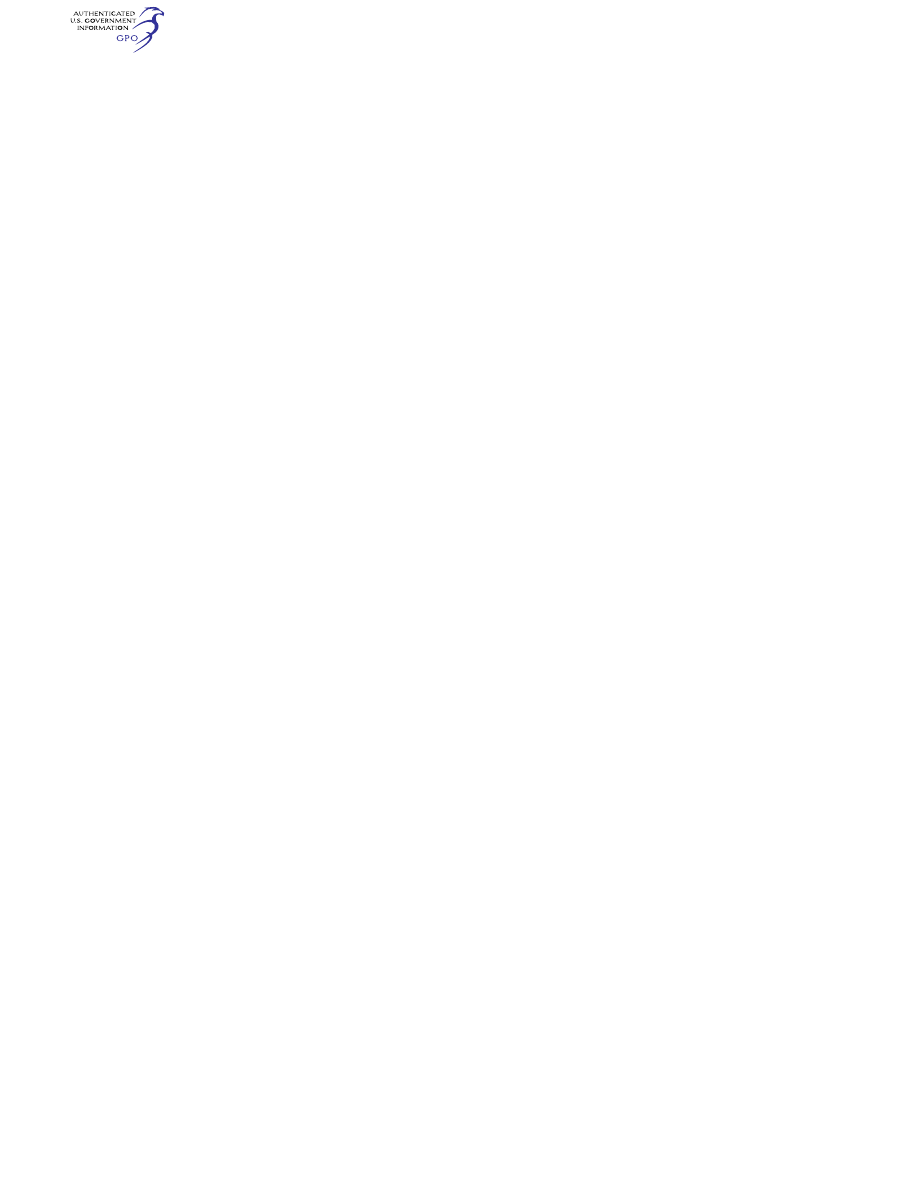
368
49 CFR Ch. XII (10–1–23 Edition)
§ 1544.401
Subpart E—Screener Qualifica-
tions When the Aircraft Oper-
ator Performs Screening
§ 1544.401
Applicability of this sub-
part.
This subpart applies when the air-
craft operator is conducting inspec-
tions as provided in § 1544.207.
[74 FR 47704, Sept. 16, 2009]
§ 1544.403
[Reserved]
§ 1544.405
Qualifications of screening
personnel.
(a) No individual subject to this sub-
part may perform a screening function
unless that individual has the quali-
fications described in §§ 1544.405
through 1544.411. No aircraft operator
may use such an individual to perform
a screening function unless that person
complies with the requirements of
§§ 1544.405 through 1544.411.
(b) A screener must have a satisfac-
tory or better score on a screener selec-
tion test administered by TSA.
(c) A screener must be a citizen of
the United States.
(d) A screener must have a high
school diploma, a General Equivalency
Diploma, or a combination of edu-
cation and experience that the TSA has
determined to be sufficient for the in-
dividual to perform the duties of the
position.
(e) A screener must have basic apti-
tudes and physical abilities including
color perception, visual and aural acu-
ity, physical coordination, and motor
skills to the following standards:
(1) Screeners operating screening
equipment must be able to distinguish
on the screening equipment monitor
the appropriate imaging standard spec-
ified in the aircraft operator’s security
program.
(2) Screeners operating any screening
equipment must be able to distinguish
each color displayed on every type of
screening equipment and explain what
each color signifies.
(3) Screeners must be able to hear
and respond to the spoken voice and to
audible alarms generated by screening
equipment at an active screening loca-
tion.
(4) Screeners who perform physical
searches or other related operations
must be able to efficiently and thor-
oughly manipulate and handle such
baggage, containers, cargo, and other
objects subject to screening.
(5) Screeners who perform pat-downs
or hand-held metal detector searches of
individuals must have sufficient dex-
terity and capability to thoroughly
conduct those procedures over an indi-
vidual’s entire body.
(f) A screener must have the ability
to read, speak, and write English well
enough to—
(1) Carry out written and oral in-
structions regarding the proper per-
formance of screening duties;
(2) Read English language identifica-
tion media, credentials, airline tickets,
documents, air waybills, invoices, and
labels on items normally encountered
in the screening process;
(3) Provide direction to and under-
stand and answer questions from
English-speaking individuals under-
going screening; and
(4) Write incident reports and state-
ments and log entries into security
records in the English language.
(g) At locations outside the United
States where the aircraft operator has
operational control over a screening
function, the aircraft operator may use
screeners who do not meet the require-
ments of paragraph (f) of this section,
provided that at least one representa-
tive of the aircraft operator who has
the ability to functionally read and
speak English is present while the air-
craft operator’s passengers are under-
going security screening. At such loca-
tions the aircraft operator may use
screeners who are not United States
citizens.
§ 1544.407
Training, testing, and
knowledge of individuals who per-
form screening functions.
(a)
Training required. Before per-
forming screening functions, an indi-
vidual must have completed initial, re-
current, and appropriate specialized
training as specified in this section and
the aircraft operator’s security pro-
gram. No aircraft operator may use
any screener, screener in charge, or
checkpoint security supervisor unless
VerDate Sep<11>2014
13:18 Nov 27, 2023
Jkt 259235
PO 00000
Frm 00378
Fmt 8010
Sfmt 8010
Y:\SGML\259235.XXX
259235
skersey on DSK4WB1RN3PROD with CFR

369
Transportation Security Administration, DHS
§ 1544.411
that individual has satisfactorily com-
pleted the required training. This para-
graph does not prohibit the perform-
ance of screening functions during on-
the-job training as provided in § 1544.409
(b).
(b)
Use of training programs. Training
for screeners must be conducted under
programs provided by TSA. Training
programs for screeners-in-charge and
checkpoint security supervisors must
be conducted in accordance with the
aircraft operator’s security program.
(c)
Citizenship. A screener must be a
citizen or national of the United
States.
(d)
Screener readiness test. Before be-
ginning on-the-job training, a screener
trainee must pass the screener readi-
ness test prescribed by TSA.
(e)
On-the-job training and testing.
Each screener must complete at least
60 hours of on-the-job training and
must pass an on-the-job training test
prescribed by TSA. No aircraft oper-
ator may permit a screener trainee to
exercise independent judgment as a
screener, until the individual passes an
on-the-job training test prescribed by
TSA.
(f)
Knowledge requirements. Each air-
craft operator must ensure that indi-
viduals performing as screeners,
screeners-in-charge, and checkpoint se-
curity supervisors for the aircraft oper-
ator have knowledge of the provisions
of this part, the aircraft operator’s se-
curity program, and applicable Secu-
rity Directives and Information Circu-
lars to the extent necessary to perform
their duties.
(g)
Disclosure of sensitive security infor-
mation during training. The aircraft op-
erator may not permit a trainee to
have access to sensitive security infor-
mation during screener training unless
a criminal history records check has
successfully been completed for that
individual in accordance with § 1544.229,
and the individual has no disqualifying
criminal offense.
[67 FR 8364, Feb. 22, 2002, as amended at 74
FR 47704, Sept. 16, 2009]
§ 1544.409
Integrity of screener tests.
(a)
Cheating or other unauthorized con-
duct. (1) Except as authorized by the
TSA, no person may—
(i) Copy or intentionally remove a
test under this part;
(ii) Give to another or receive from
another any part or copy of that test;
(iii) Give help on that test to or re-
ceive help on that test from any person
during the period that the test is being
given; or
(iv) Use any material or aid during
the period that the test is being given.
(2) No person may take any part of
that test on behalf of another person.
(3) No person may cause, assist, or
participate intentionally in any act
prohibited by this paragraph (a).
(b)
Administering and monitoring
screener tests. (1) Each aircraft operator
must notify TSA of the time and loca-
tion at which it will administer each
screener readiness test required under
§ 1544.405(d).
(2) Either TSA or the aircraft oper-
ator must administer and monitor the
screener readiness test. Where more
than one aircraft operator or foreign
air carrier uses a screening location,
TSA may authorize an employee of one
or more of the aircraft operators or for-
eign air carriers to monitor the test for
a trainee who will screen at that loca-
tion.
(3) If TSA or a representative of TSA
is not available to administer and mon-
itor a screener readiness test, the air-
craft operator must provide a direct
employee to administer and monitor
the screener readiness test.
(4) An aircraft operator employee
who administers and monitors a
screener readiness test must not be an
instructor, screener, screener-in-
charge, checkpoint security supervisor,
or other screening supervisor. The em-
ployee must be familiar with the proce-
dures for administering and monitoring
the test and must be capable of observ-
ing whether the trainee or others are
engaging in cheating or other unau-
thorized conduct.
§ 1544.411
Continuing qualifications of
screening personnel.
(a)
Impairment. No individual may
perform a screening function if he or
she shows evidence of impairment,
such as impairment due to illegal
drugs, sleep deprivation, medication,
or alcohol.
VerDate Sep<11>2014
13:18 Nov 27, 2023
Jkt 259235
PO 00000
Frm 00379
Fmt 8010
Sfmt 8010
Y:\SGML\259235.XXX
259235
skersey on DSK4WB1RN3PROD with CFR

